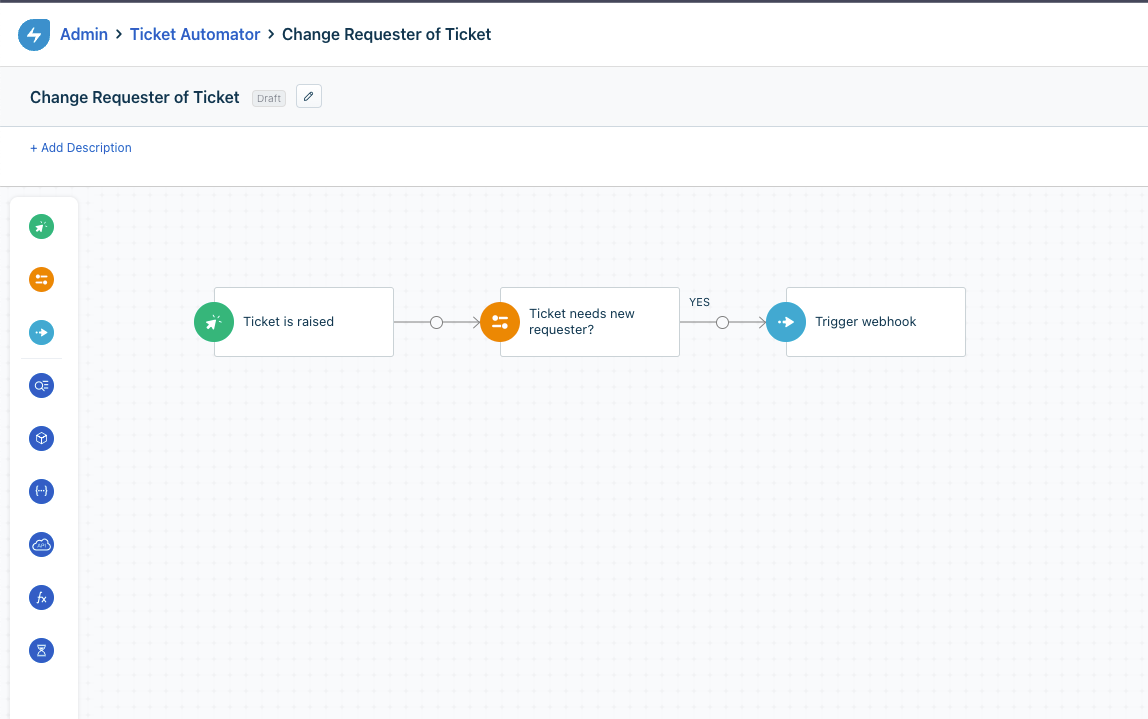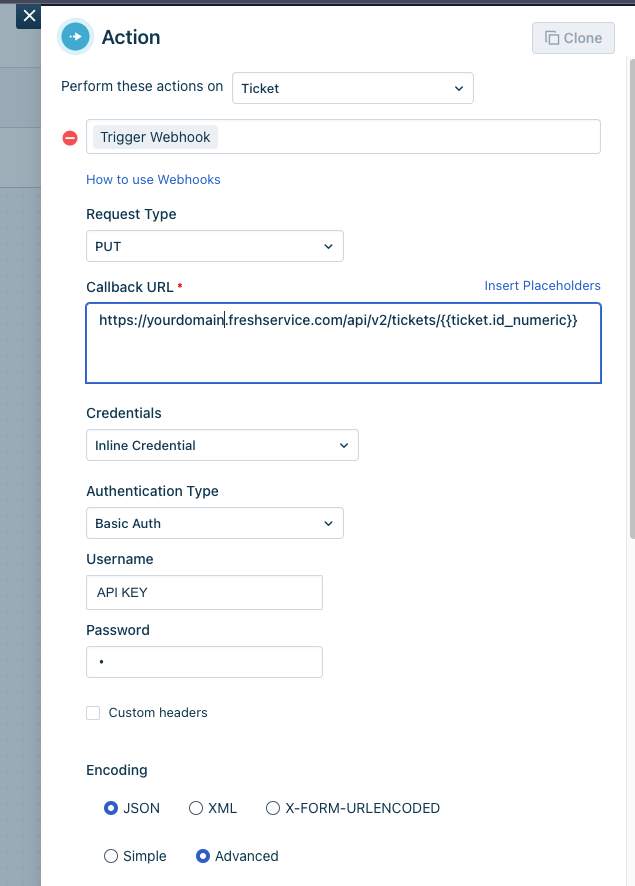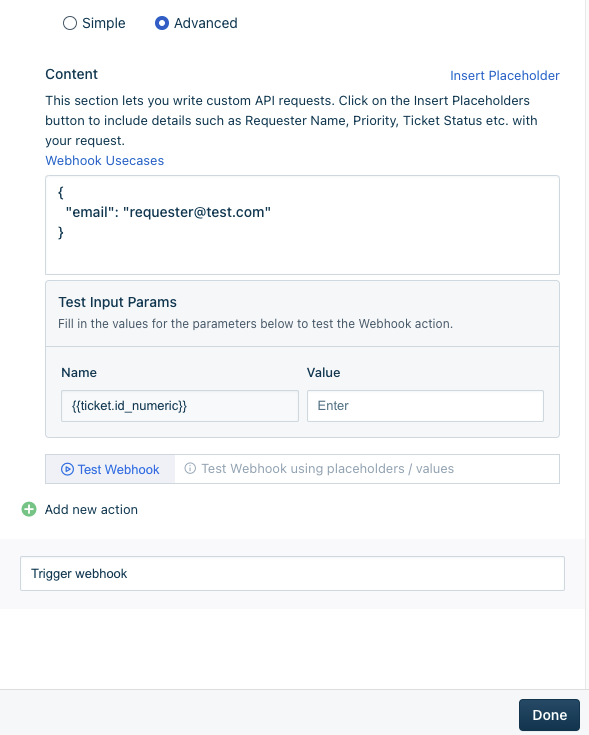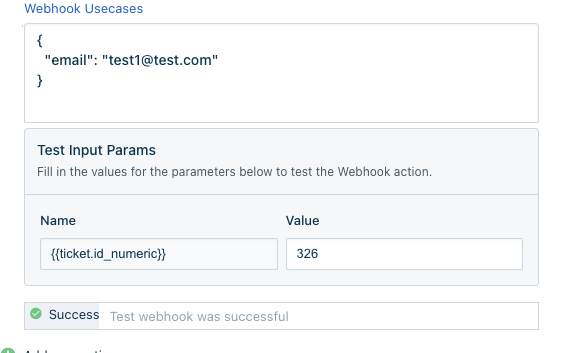Does anyone have a way to change the requester of an emailed ticket using workflow?
Someone sends an email to FS to create a ticket, but they want all notices and communications to go to someone else.
Does anyone have a way to change the requester of an emailed ticket using workflow?
Someone sends an email to FS to create a ticket, but they want all notices and communications to go to someone else.
Hello
There are a couple ways to do this but ultimately you need the value of the “New” requester and then you can trigger a webhook to hit the Freshservice API and update the requester to the “New” requester value for that ticket.
Hope that helps.
Hello
There are a couple ways to do this but ultimately you need the value of the “New” requester and then you can trigger a webhook to hit the Freshservice API and update the requester to the “New” requester value for that ticket.
Hope that helps.
Hi Zachary,
Could you expand on this please or point me to where I can find how to do that?
I have a workflow where I would like to change the requester of a ticket based on certain criteria and assumed I could just change that like the other fields.
In my case, an HR team member (requester) logs a ticket about adding or removing a job posting on our website and then a Marketing Team member (agent) then emails the hosting company contact (requester) to get that added to the site.
I’ve automated it so that when the ticket is logged by HR, the contact at our webhosts gets CC’d removing the need for her to be emailed manually but I’d like her to now be the requester instead so that she can log into FS and see her logged tickets.
Does that make sense? It’s not very often this happens so it really doesn’t warrant giving an agent license to the webhost contact. But it would make life easier when it does happen for sure.
Thanks.
I’d like to do the same thing. We have automated emails that come into the helpdesk that are static emails and dont change much. I’d like to change the requester to an employee for those. I’ve submitted an idea, upvote please so we can get an easier way to do this via the Workflow Automator.
Change Requester via Workflow Automator | Freshworks Community
Hello
You generate your workflow to trigger on your conditions, then set the action block to “Trigger a webhook” to hit the freshservice api for the specific ticket that triggered the workflow as such:


Then set the JSON you will be sending in the PUT request as such:

This will then update the ticket and change it to the new requester. Hope that helps :)
Thank you, tried this along with many forms and still will not work.
Tried all authentication methods
Tried many users to test along with different input parameters and nothing works… Just really frustrating that it’s not a field to choose from like ALL the other fields… I dont want to waste any more time on this unless there is an easier way. I’ll just have my helpdesk manually work through all the automated tickets that come in.
I haven’t been able to successfully set this up either.

I haven’t been able to successfully set this up either.

I just tried this action again in postman and it returned a 200 OK status code. I then created the web hook and used the “Test webhook” button and it worked there too as a PUT request

Does the API key you are using have the right permissions by chance?
I am one of the new admins, and this tbh is my first time setting up webhooks or API’s. I explore testing this via postman. Thanks for the quick response Zach!
This doesn’t work for me.
The ‘test webhook’ working fine as expected. But when tickets coming in, it failed. The execution logs said ‘successful’, but the ticket is not updated and if i click on the ticket, and go over the ‘activities’ tab, it shows the web hook failed and no reasons listed
This doesn’t work for me.
The ‘test webhook’ working fine as expected. But when tickets coming in, it failed. The execution logs said ‘successful’, but the ticket is not updated and if i click on the ticket, and go over the ‘activities’ tab, it shows the web hook failed and no reasons listed
Screenshots? Success just means that the command was accepted by the endpoint, not that something happened after the connection was allowed
This doesn’t work for me.
The ‘test webhook’ working fine as expected. But when tickets coming in, it failed. The execution logs said ‘successful’, but the ticket is not updated and if i click on the ticket, and go over the ‘activities’ tab, it shows the web hook failed and no reasons listed
There are webhook action in the Action node and there are a Webrequest nod. Just so we are on the same level. I notices that I would get 20x even with a non valid JSON payload. I twas to update fields in requested service item. The payload was the same as the respons but when I read the API doc I saw that I needed to remove some of the JSON to get it right.
But as
Enter your E-mail address. We'll send you an e-mail with instructions to reset your password.